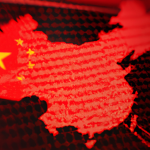As digital platforms become battlegrounds for political influence, the interactions between Elon Musk and Donald Trump are drawing significant attention, particularly during critical periods such as the U.S. elections. This article explores the dynamics between these two influential figures and the broader implications of their online engagements for political discourse and social media dynamics.
The Intersection of Technology and Politics
Elon Musk and Donald Trump are prominent figures whose online activities resonate far beyond their immediate spheres. Musk, known for his pioneering work in technology, has extended his influence into social media through his acquisition and active participation on platform X (formerly Twitter). Trump, on the other hand, has utilized his substantial online following to shape public opinion and advocate for political agendas.
The Incident of Facebook’s Outage
A notable event occurred during “Super Tuesday,” when Facebook experienced a massive, unexpected outage affecting hundreds of thousands of users globally. This incident coincided with a sensitive moment politically, providing a ripe scenario for Musk to openly mock Facebook’s vulnerability, further accentuating the incident’s timing and its political undertones.
Musk’s delight was evident as he took to X, his platform, to jest about Zuckerberg and the Facebook mishap, enriching the humorous atmosphere surrounding the event. His posts garnered widespread engagement from the online community, amplifying the visibility and discussion around the incident.
The Role of Social Media in Political Arenas
Social media platforms like Meta (Facebook’s parent company) and X are perceived differently in terms of political alignment. Meta’s platforms are often viewed as closer to Democratic circles, whereas X has emerged as a significant venue for Republican voices. This delineation reflects the intense intertwining of American politics with technology sectors, especially as digital platforms increasingly influence public opinion and political outcomes.
During election periods, the strategic importance of online platforms becomes even more pronounced. Political forces seek to leverage social media to sway voter attitudes and decisions, making incidents like Facebook’s outage potentially significant in a political context. Musk’s acquisition of X and its use as a forum for political discourse exemplifies how tech leaders can wield substantial influence over political narratives.
Challenges and Discussions
The entanglement of technology with politics raises numerous debates and controversies. On one hand, there is a growing scrutiny over the independence and fairness of tech companies in managing their platforms without political bias. On the other hand, the reality that these platforms are influenced or even controlled by political powers is increasingly acknowledged.
The relationships between tech giants, political figures, and their platforms highlight a crucial aspect of modern political strife: the control and manipulation of information. Figures like Musk and Trump play pivotal roles in this dynamic, where the power to influence is as significant as political office itself.
Conclusion
The interplay between Elon Musk and Donald Trump on social media underscores a broader narrative about the power of digital platforms in shaping political landscapes. As these platforms continue to serve as arenas for political engagement and influence, the actions and strategies of figures like Musk and Trump will undoubtedly mold future political and social trajectories.
